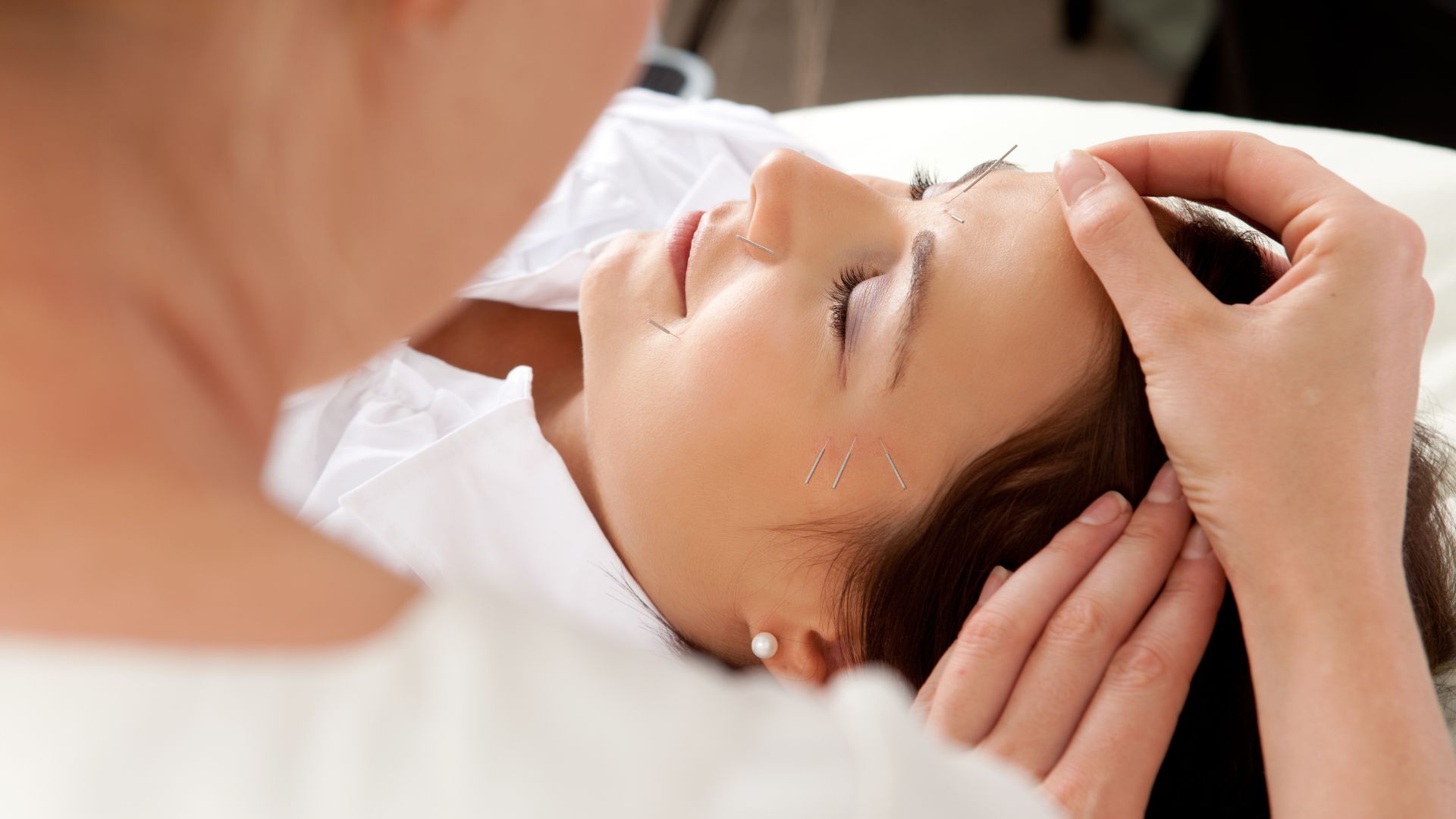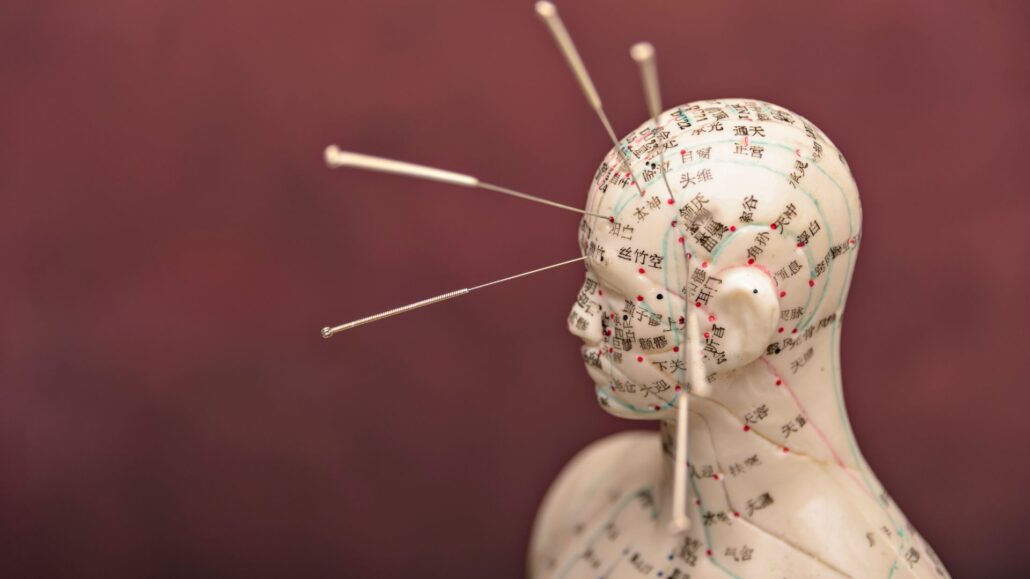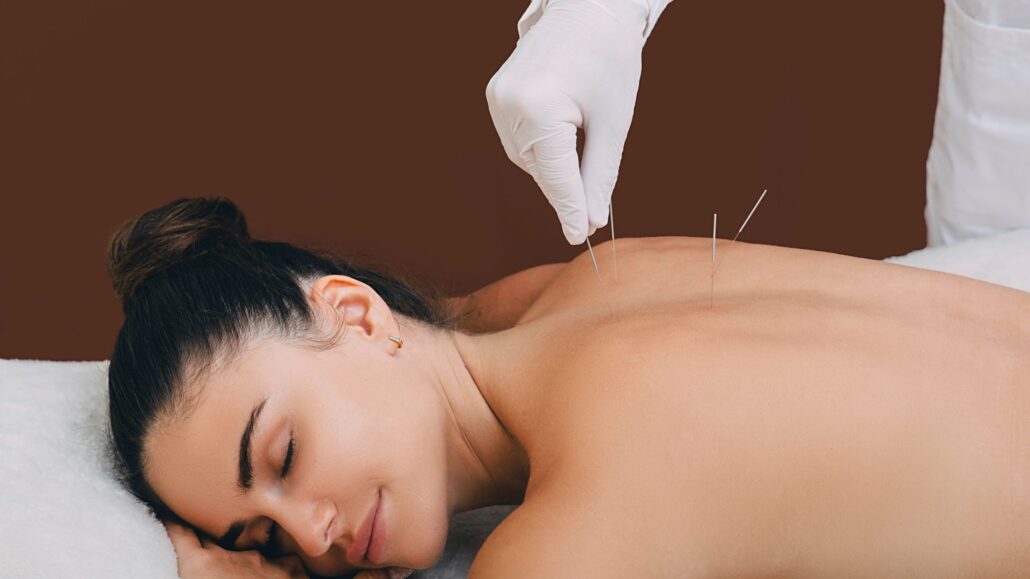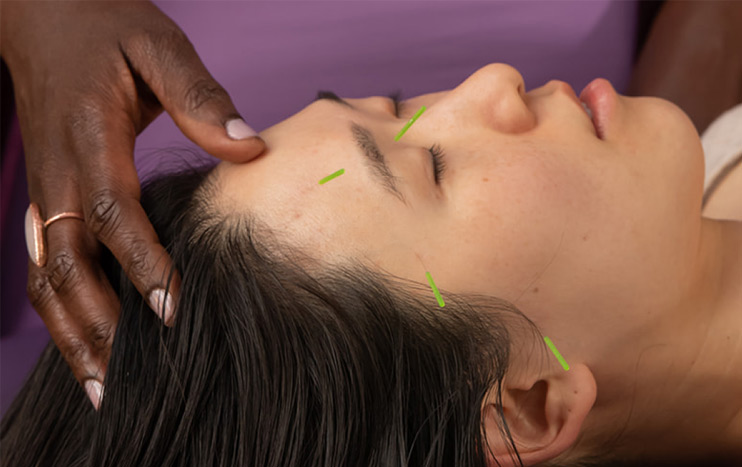Acupuncture and Brain Health: How This Ancient Practice Can Support Cognitive Function

Share
In this Article
Key Takeaways
| Topic | Summary |
|---|---|
| Acupuncture’s Origins | Acupuncture originated from Traditional Chinese Medicine (TCM), a holistic system of healing practiced for over 3,000 years. It has gained widespread acceptance in Western medicine, with top medical schools offering acupuncture programs. |
| Mechanism of Action | In TCM, acupuncture unblocks the flow of energy (Qi) along meridians. From a Western perspective, it stimulates the central nervous system, triggering the body’s natural healing response. |
| Increased Cerebral Blood Flow | Acupuncture improves cerebral blood flow, which is crucial for optimal cognitive function. A 2016 study found that post-stroke patients experienced increased cerebral blood flow velocity after acupuncture. |
| Stress Reduction and Brain Connectivity | Acupuncture induces a calm state, enhancing brain connectivity and positively impacting attention, learning, and memory recall. It may also release mood-lifting hormones and chemicals. |
| Pain Management | Acupuncture is recognized for alleviating various types of pain, including lower back pain, neck pain, and joint pain. The NIH recommends it for persistent pain management. |
| Clinical Evidence and Research | Numerous studies, including those from Harvard Medical School, have explored acupuncture’s efficacy in supporting brain health and cognitive function. |
| Safety and Professional Acupuncturists | Seeking treatment from licensed and experienced acupuncturists is crucial for safety, hygiene, and proper technique. |
| Individualized Treatment | Acupuncture is highly individualized, with personalized treatment plans tailored to each person’s unique constitution, energy flow, and health condition. |
| Historical Context and Cultural Significance | Acupuncture has a rich history and cultural significance, with historical figures like Confucius advocating for its practice. |
| Holistic Health | Acupuncture aligns with the principles of Traditional Chinese Medicine, recognizing the interconnectedness of the body, mind, and spirit. |
| Recommended Service | CARRINNA’s Traditional Acupuncture service focuses on mind-body-spirit alignment, using acupuncture as part of Chinese Medicine. Read More |
| The “Fortify Serum” is a richly concentrated beauty oil infused with Astragalus and Peony, working to stabilize, protect, and nourish compromised or trouble-prone skin for a calm, strengthened complexion. Buy Now |
Acupuncture cognitive function is an ancient practice with modern-day relevance for supporting brain health and cognitive performance. As the founder of CARRINNA, a holistic wellness center, I’ve witnessed first-hand the transformative power of acupuncture in enhancing mental clarity, focus, and overall cognitive function.
Acupuncture’s Origins in Traditional Chinese Medicine (TCM)
Acupuncture is a cornerstone of Traditional Chinese Medicine (TCM), a comprehensive system of healing that has been practiced for over 3,000 years. While it may have initially seemed unfamiliar to Western cultures, acupuncture has gained widespread acceptance and recognition in modern medicine. Top medical schools like UCLA, Harvard, Yale, Stanford, and Johns Hopkins now offer acupuncture programs, acknowledging its profound benefits.
Mechanism of Action: TCM and Western Perspectives
In TCM, acupuncture involves stimulating specific points on the body to unblock the flow of energy (Qi) along meridians or pathways. From a Western perspective, acupuncture points stimulate the central nervous system, triggering the release of various chemicals in the muscles, spinal cord, and brain. These biochemical changes activate the body’s natural healing response, promoting overall well-being.
Acupuncture and Cognitive Function
Increased Cerebral Blood Flow

One of the remarkable benefits of acupuncture lies in its ability to improve cerebral blood flow. A 2016 study explored acupuncture’s impact on stroke rehabilitation, and the results were astounding. Post-stroke patients experienced a significant increase in cerebral blood flow velocity to the brain following acupuncture treatments.
Adequate blood flow to the brain is critical for optimal cognitive function. Despite the brain accounting for only 2% of the body’s weight, it consumes a staggering 20% of the body’s oxygen and blood supply. Improved blood circulation to the brain enhances its ability to function at its best.
Stress Reduction and Brain Connectivity
Acupuncture has a profound calming effect on the body and mind. By inducing a state of relaxation, it enhances brain connectivity, positively impacting attention, learning, and memory recall. Additionally, acupuncture may release mood-lifting hormones and natural chemicals like GABA, serotonin, dopamine, and endorphins, contributing to emotional well-being and cognitive performance.
Pain Management
Beyond its cognitive benefits, acupuncture is widely recognized for its ability to alleviate various types of pain, including lower back pain, neck pain, and joint pain. In fact, the National Institutes of Health (NIH) recommends acupuncture as a viable option for persistent pain management.
Clinical Evidence and Research
Refer to Studies
Numerous research studies have explored acupuncture’s efficacy in supporting brain health. Harvard Medical School, for instance, has conducted investigations into the underlying neuroanatomy of acupuncture, shedding light on its mechanisms and effects on the brain.
Paradoxes and Neuromodulation
To understand the science behind acupuncture, check out scholarly articles like Dorsher’s. They go into detail about the paradoxes and neuromodulatory effects of this ancient technique. These studies provide insights into how acupuncture influences brain function and neurological processes.
Practical Considerations
Safety and Professional Acupuncturists
While acupuncture is generally safe when performed by trained professionals, it’s crucial to seek treatment from licensed and experienced acupuncturists. Proper technique, hygiene, and safety protocols are essential for ensuring the best possible outcomes.
Individualized Treatment
One of the key principles of acupuncture is its individualized approach. Each person’s constitution, energy flow, and health condition are unique, and personalized treatment plans are essential. Acupuncturists tailor their treatments based on individual assessments, considering physical, emotional, and lifestyle factors.
Acupuncture’s Historical Context and Cultural Significance
Acupuncture’s roots extend far beyond its medical applications. This ancient practice holds deep cultural significance, steeped in rituals and traditions that have evolved over centuries. Historical figures like Confucius and the Yellow Emperor, considered the father of Traditional Chinese Medicine, advocated for and practiced acupuncture.
Individualized Approach and Holistic Health
Acupuncture is not a one-size-fits-all treatment. Each patient’s constitution, energy flow, and health condition are unique. Acupuncturists tailor treatments based on individual assessments, considering physical, emotional, and lifestyle factors. This holistic approach aligns with the principles of Traditional Chinese Medicine, recognizing the interconnectedness of the body, mind, and spirit.

Integration with Modern Medicine
While acupuncture is rooted in ancient wisdom, it has seamlessly integrated into modern healthcare. Collaborations between acupuncturists and conventional medical practitioners are becoming increasingly common, as patients seek a comprehensive approach to their well-being. Success stories abound, with individuals benefiting from the synergistic effects of combining acupuncture with conventional therapies.
Acupuncture and Neuroplasticity
One of the fascinating areas of research surrounding acupuncture is its potential impact on neuroplasticity – the brain’s ability to adapt and rewire itself. Studies suggest that acupuncture may influence brain plasticity by promoting neural connections, synaptic changes, and adaptability. This opens up exciting possibilities for enhancing cognitive function, learning, and overall brain health.
Acupuncture and Neuroinflammation
Recent research has shed light on acupuncture’s potential to modulate neuroinflammation, a key factor in neurodegenerative diseases like Alzheimer’s and Parkinson’s. By affecting microglial cells, cytokines, and the brain’s immune response, acupuncture may play a role in mitigating the progression of these debilitating conditions.
Acupuncture and Mental Health
Beyond its impact on cognitive function, acupuncture has demonstrated remarkable benefits for mental health. Many of my patients have reported improved mood, better sleep, and reduced psychological distress after incorporating acupuncture into their wellness routines. By addressing anxiety, depression, and stress, acupuncture supports overall well-being and cognitive performance.
Acupuncture Points and Brain Regions
Acupuncture points are intrinsically linked to specific brain regions, and stimulating these points can influence corresponding brain areas. For instance, the “Yintang” point, located between the eyebrows, is associated with calming the mind and enhancing focus. Understanding these connections allows acupuncturists to tailor treatments to target specific cognitive functions.
Acupuncture and Brain Imaging
Advancements in brain imaging techniques, such as functional MRI (fMRI) and PET scans, have provided captivating insights into the brain’s response to acupuncture. These studies have revealed changes in brain activation patterns before and after acupuncture treatments, further solidifying our understanding of its mechanisms and effects.
Acupuncture Beyond Needles
While acupuncture traditionally involves the use of fine needles, there are alternative modalities that offer unique benefits and may be more appealing to those with needle phobias. Acupressure, which involves applying pressure to specific points, and moxibustion, the burning of dried mugwort, are two such variations. Electroacupuncture, which combines needles with electrical stimulation, is another option with potential advantages.
Patient Experiences and Testimonials
Perhaps the most compelling evidence of acupuncture’s impact on cognitive function and brain health comes from the personal stories and testimonials of individuals who have experienced its transformative effects. I’ve had the privilege of witnessing patients regain mental clarity, improve focus and memory, and experience a renewed sense of cognitive vitality through acupuncture treatments.
One of my patients, Sarah, a busy executive in her late 40s, had been struggling with brain fog and diminished concentration for years. After incorporating regular acupuncture sessions into her wellness routine, she reported a remarkable improvement in her ability to focus and multitask. “It’s like a fog has lifted,” she shared, “and I can finally think clearly again.”
Another patient, Michael, a retired teacher in his 70s, had been grappling with age-related cognitive decline. After several months of acupuncture treatments, he noticed a significant improvement in his memory and overall mental sharpness. “I can engage in conversations without constantly forgetting what we were talking about,” he said, “and I feel more present and engaged in my daily life.”
These authentic stories resonate deeply, reminding us of the profound impact acupuncture can have on cognitive function and overall well-being.
Recommended Services and Products

For those seeking a comprehensive approach to well-being, our Healing Packages offer a range of services, including acupuncture, facial acupuncture, and intuitive energy healing. The Fertility & Women’s Health Package caters to issues like hormone imbalances, infertility, and menopause, while the Facial Rejuvenation Acupuncture & Vitality Package focuses on improving complexion and reducing wrinkles.
Our Traditional Acupuncture services are designed to align the mind, body, and spirit, while Facial Acupuncture offers a natural and safe approach to reducing fine lines and wrinkles, promoting a youthful glow. Additionally, we offer Microneedling to improve skin texture and treat acne scars, as well as Facial Nano Pen Sessions and Celluma LED Light Therapy for various therapeutic benefits.
Complementing our services, CARRINNA’s product line features a range of botanically-infused skincare solutions. The “Regenerate Serum” combines Reishi and Centella to heal sun damage, improve elasticity, and brighten skin tone, while the “Fortify Serum” is a richly concentrated beauty oil infused with Astragalus and Peony, working to stabilize, protect, and nourish compromised or trouble-prone skin.
Whether you’re seeking acupuncture treatments for cognitive function, holistic healing packages, or botanically-infused skincare products, CARRINNA is dedicated to providing a comprehensive approach to well-being, drawing from the ancient wisdom of Traditional Chinese Medicine and the latest advancements in modern science.
FAQ
Common acupuncture points include Yintang, located between the eyebrows and associated with calming the mind and enhancing focus, LI4 (Hegu) between the thumb and index finger, used for pain relief and stress reduction, ST36 (Zusanli) below the knee, known for boosting energy, and GV20 (Baihui) at the top of the head, used for promoting mental clarity and alleviating headaches.
Acupuncture affects cognitive function by improving cerebral blood flow, inducing a calm state, stimulating the release of mood-lifting hormones and neurotransmitters, and potentially influencing neuroplasticity, the brain’s ability to adapt and rewire itself.
Yes, acupuncture can improve memory and concentration by enhancing cerebral blood flow, reducing stress and anxiety, promoting relaxation, and improving sleep quality, factors crucial for memory consolidation and cognitive performance.
The study on stroke rehabilitation found that acupuncture treatments led to a significant increase in cerebral blood flow velocity to the brain, which is crucial for the recovery of cognitive function and motor skills in stroke patients.
Neuroplasticity refers to the brain’s ability to adapt and reorganize itself in response to experiences and stimuli. Acupuncture may influence neuroplasticity by promoting neural connections and synaptic changes, enhancing adaptability, and potentially rewiring neural pathways to optimize cognitive function and overall brain health.
The benefits of acupuncture for brain health include improved cerebral blood flow, reduced stress and anxiety levels, enhanced memory, concentration, and overall cognitive performance, potential modulation of neuroinflammation, and support for mental health and emotional well-being.
Conclusion
Acupuncture, an ancient practice rooted in Traditional Chinese Medicine, has emerged as a powerful ally in supporting cognitive function and brain health. From increasing cerebral blood flow and reducing stress to enhancing neuroplasticity and modulating neuroinflammation, this holistic approach offers a multitude of benefits for optimal cognitive performance.
As we navigate the complexities of modern life, with its constant demands on our mental capacities, acupuncture provides a natural and complementary solution for maintaining mental clarity, focus, and overall cognitive vitality. By addressing the interconnectedness of the body, mind, and spirit, acupuncture aligns with the principles of holistic well-being, offering a comprehensive approach to cognitive health.
Remember, acupuncture is not a one-size-fits-all solution; it’s a highly individualized practice that takes into account each person’s unique constitution, energy flow, and health condition. By seeking treatment from qualified and experienced practitioners, you can ensure a personalized approach tailored to your specific needs and goals.
As the founder of CARRINNA, I am deeply committed to providing a comprehensive and holistic approach to well-being, drawing from the rich traditions of Traditional Chinese Medicine and integrating them seamlessly with modern techniques and advancements. Whether through our acupuncture services, healing packages, or botanically-infused skincare products, our mission is to empower individuals to achieve optimal health, vitality, and overall well-being.
Self-care is an essential aspect of my philosophy, and it’s why I have created products such as my Essential Mist. This invigorating mist is composed of a White Tea and Rosewater base with a reparative blend of Prebiotics and East Asian Medicinal plants of Ginseng and Tremella, which helps combat stress, dehydration, and fatigue. Additionally, I offer consultations for those who are looking to further prioritize their self-care and wellness journey.







